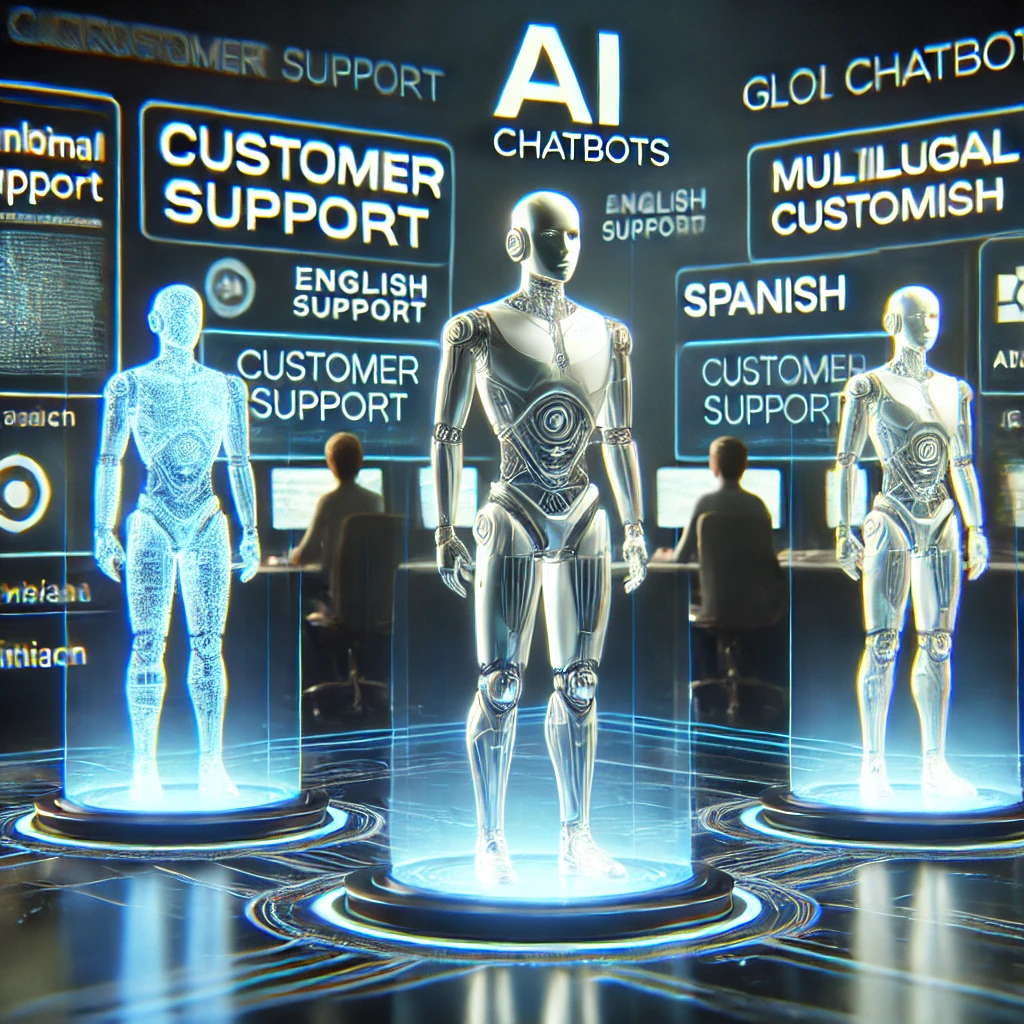Introduction:
The advent of generative artificial intelligence in late 2022 marked the beginning of a new era for global entrepreneurship. As a consultant specializing in international finance and business strategy, I have been closely observing how this technology is redefining the landscape for startups around the world, especially those aspiring to a presence in the competitive US market.
Recent data from the MIT Technology Review indicates that 35% of global companies are already using generative AI, with this figure projected to reach 70% in the next two years. For international startups, this technology represents an unprecedented opportunity to level the playing field with larger, more established competitors.
In this comprehensive article, we’ll explore advanced and practical strategies for global entrepreneurs who want to leverage the power of generative AI in their startups. Whether you’re a founder based in Latin America, Europe, Asia or any other part of the world, these insights will help you optimize operations, conquer the US market and establish a robust global presence.
Part 1: Ready to Roll 🚀 – Basic Strategies and Practical Actions
Part 1, “Ready to Roll”, offers practical actions and immediate advice for entrepreneurs who need quick and effective guidance.

1. Revolutionizing Customer Service with Generative AI
Customer service is often the first point of contact between your startup and the global market. Generative AI offers exceptional opportunities to take this experience to new heights.
Implementing multilingual chatbots
– 24/7 Support: Use AI-powered chatbots to offer continuous support in multiple languages, essential for startups with global ambitions.
– Cultural customization: Train your chatbot to understand and respond to specific cultural nuances in different markets.
Practical example: A Brazilian fintech expanding to the US used an AI chatbot capable of switching between Portuguese and English, adapting financial slang and cultural references to each market. This resulted in a 40% increase in customer satisfaction and a 30% reduction in support costs.
Dynamic and intelligent FAQ creation
– Question anticipation: Use AI to analyze question patterns and create an FAQ section that constantly evolves.
– Knowledge Base Integration: Connect your FAQ to an AI-powered knowledge base to provide detailed, up-to-date answers.
Tax Tip: For international startups, include a specific FAQ section on cross-border tax and regulatory issues. This can save significant time on repetitive queries and demonstrate expertise in the global market.
2. Optimizing Global Marketing Strategies
For international startups, generative AI can be a game changer in creating and executing marketing strategies that resonate across multiple markets.
Predictive Analysis of Market Trends
– Niche identification: Use AI to analyze big data and identify under-served market niches in different countries.
– Trend Forecasting: Implement AI models to predict consumer trends in target markets, allowing your startup to get ahead of the competition.
Content Personalization at Scale
– Automatic Localization: Use AI to adapt marketing content for different cultures and languages, while maintaining the essence of the message.
– Intelligent A/B Testing: Implement automated A/B tests that adjust in real time based on user feedback in different regions.
Case Study: A Singaporean e-commerce startup used generative AI to create and test over 1000 ad variations for the US market in just one week. The result was a 65% increase in marketing ROI and a 40% reduction in cost per customer acquisition.
3. In-depth Global Competitive Analysis
For international startups, understanding the competitive landscape in multiple markets is crucial. Generative AI can turn this challenging task into a strategic advantage.
Global Competitor Mapping
– Automatic Identification: Use AI to continuously scan the global market and identify new competitors or strategic moves.
– Sentiment Analysis: Implement AI-based sentiment analysis to monitor the brand perception of competitors in different markets.
Dynamic Price Benchmarking
– Automatic Price Adjustment: Use AI to analyze and adjust prices in real time based on global market fluctuations and competitors’ movements.
– Scenario Simulations: Create AI models to simulate different pricing strategies and their potential impacts on multiple markets.
Strategic Insight: For Tech startups entering the US market, use AI to analyze the pricing structures of successful SaaS companies. This can help formulate pricing strategies that are competitive and attractive to venture capitalists.
Part 2: Deep Dive 🤿 – Technical Deep Dive into Advanced Strategies
Part 2, “Deep Dive”, provides in-depth analysis for those who want to dive into the technical and complex aspects of international finance.

4. Customer Retention Engineering with AI
Customer retention is crucial for the sustainable growth of global startups. Generative AI offers powerful tools to take your retention strategies to the next level.
Predictive Churn Analysis
– Machine Learning Models: Develop ML models that predict the likelihood of churn based on customer behavior patterns.
– Proactive Intervention: Implement AI systems that automatically trigger personalized retention strategies when the risk of churn is detected.
Technical Implementation: Use frameworks such as TensorFlow or PyTorch to create churn prediction models. Integrate these models with your CRM for a holistic approach to retention.
Hyper-segmented personalization
– Microsegmentation: Use AI to create ultra-specific customer segments based on behavior, preferences and interaction history.
– Dynamic Customer Journeys: Create adaptive customer journeys that adjust in real time based on user actions and feedback.
Advanced Use Case: An EdTech startup from India implemented an AI system that analyzes each student’s individual learning style and dynamically adapts the content and user interface. This resulted in a 75% increase in long-term retention and a 50% improvement in course completion rates.
5. Revolutionizing Global Talent Recruitment and Management
For international startups, attracting and retaining global talent is a constant challenge. Generative AI can transform this process, making it more efficient and effective.
Advanced Candidate Screening
– Semantic Analysis of CVs: Implement AI that goes beyond simple keyword matching, understanding the context and relevance of the candidate’s experiences.
– Soft Skills Assessment: Use AI to analyze interview videos, evaluating body language and speech patterns to identify crucial soft skills.
Compliance Tip: When using AI in recruitment, be aware of non-discrimination regulations in different countries. Implement regular checks to ensure that your algorithms are not introducing unintentional biases.
Personalized Onboarding and Training
– Adaptive Development Plans: Use AI to create personalized development plans that adjust based on employee progress and feedback.
– Virtual Mentoring: Implement AI assistants who offer ongoing mentoring and answer questions from new employees, facilitating integration into a global company culture.
Retention Strategy: For startups with global remote teams, use AI to analyze communication and engagement patterns. This can help identify early signs of disengagement or burnout, enabling proactive interventions.
6. Optimizing International Operations and Logistics
For startups operating globally, optimizing operations and logistics is crucial to maintaining competitiveness. Generative AI offers innovative solutions to these challenges.
Smart Supply Chain Management
– Global Demand Forecasting: Use AI models to forecast demand in different markets, taking into account local factors such as seasonality and cultural events.
– Route Optimization: Implement AI algorithms to optimize international delivery routes, taking into account factors such as customs regulations and weather conditions.
Practical example: A Latin American e-commerce start-up used AI to optimize its supply chain for the US market. The system predicted demand peaks with 95% accuracy and reduced delivery times by 30%, resulting in a 50% increase in customer satisfaction.
Automation of International Financial Processes
– Automatic Financial Reconciliation: At KwikLedgers we use AI to analyze, categorize and reconcile financial transactions for our clients’ accounting and tax preparation.
– Advanced Fraud Detection: Implement AI systems that detect anomalous patterns in global transactions, protecting against international fraud.
Tax Insight: For startups operating in multiple countries, use AI to optimize transfer pricing strategies. This can help maximize tax efficiency while ensuring compliance with international regulations.
7. AI-driven product innovation
Generative AI can be a powerful tool to drive product innovation, especially for startups looking to differentiate themselves in global markets.
Predictive Product Development
– Global Trend Analysis: Use AI to analyze social media data, patents and market research in different countries to identify innovation opportunities.
– Virtual Prototyping: Implement generative AI to create and test virtual prototypes, reducing development time and cost.
Case study: An Israeli biotech start-up used generative AI to simulate millions of molecular combinations, speeding up the development of a new drug by 60% compared to traditional methods.
Mass Customization
– Dynamic Customization: Use AI to create products that automatically adapt to individual user preferences in different markets.
– On-Demand Production: Implement AI systems that optimize production based on real-time demand, reducing waste and improving efficiency.
Intellectual Property Tip: When using AI for product innovation, carefully consider the IP implications. In many countries, AI-generated inventions still operate in a loosely defined legal area. Consult international IP experts to protect your innovations properly.
Conclusion
The integration of generative AI into the operations of global startups is not just a passing trend, but a strategic necessity for those seeking to compete and thrive on the international business stage. From optimizing customer service to revolutionizing product innovation processes, AI offers a set of powerful tools that can level the playing field for startups, regardless of their geographical origin.
For international entrepreneurs, especially those targeting the American market, the strategic adoption of generative AI can be the catalyst that transforms a local startup into a global player. However, it’s crucial to remember that technology is just a tool. The real differentiator remains strategic vision, a deep understanding of the market and the ability to adapt quickly to change.
As you embark on this AI-driven transformation journey, keep an eye on the ethical, legal and cultural considerations specific to each market in which you operate. Compliance and accountability in the use of AI will be just as important as the efficiency it brings.
The future of global entrepreneurship is bright and full of possibilities for those who embrace generative AI strategically and responsibly. Whether you’re leading a tech startup in São Paulo, a fintech in Singapore or a biotech company in Tel Aviv, the tools and strategies discussed in this article can be the differentiator for your global success.
FAQs
1. Q: How can startups with limited resources begin to implement generative AI?
A: Start with open source generative AI solutions or cloud-based services with pre-trained models. Platforms such as OpenAI GPT, Google Cloud AI, or AWS SageMaker offer affordable options for startups. Focus initially on a specific area, such as customer service or marketing data analysis, to maximize ROI.
2. Q: What are the legal considerations when using generative AI in global operations?
A: The main legal considerations include:
– Data protection and privacy: Make sure you comply with regulations such as GDPR in Europe, LGPD in Brazil, and CCPA in California.
– Intellectual property: Be aware of IP implications when using AI to create content or innovations.
– Liability for automated decisions: In some countries, there are specific regulations on decisions made by AI systems.
– Ethics and bias: Monitor your AI systems to ensure that they are not perpetuating prejudice or discrimination.
It is recommended to consult a lawyer specializing in technology and international law for specific guidance.
3. Q: How can generative AI help startups adapt to different business cultures?
A: Generative AI can help with cultural adaptation in several ways:
– Language and communication analysis: Adapting the tone and style of communication to different cultures.
– Automated market research: Providing insights into consumer preferences and behaviors in different regions.
– Cultural training: Creating customized training programs for international teams.
– Product localization: Helping to adapt products and services for specific markets.
Remember that AI should be used as a support tool, not as a substitute for genuine human understanding of cultural nuances.
4. Q: What is the typical investment required to implement generative AI solutions in a startup?
A: The investment can vary significantly depending on the scale and complexity of the implementation. Some costs to consider:
– Software licensing: Can range from $0 (for open-source solutions) to tens of thousands of dollars per year for enterprise platforms.
– IT infrastructure: Cloud computing costs can range from a few hundred to thousands of dollars per month.
– Talent: Hiring AI specialists can cost from $100,000 to $300,000 or more per year, depending on location and experience.
– Training and onboarding: Consider additional costs to train your existing team.
Startups can start with more affordable solutions and scale up as needed. Often, the ROI can quickly justify the investment through operational efficiencies and competitive advantages.
5. Q: How can generative AI help startups overcome language barriers in international expansions?
A: Generative AI can be a powerful tool for overcoming language barriers:
– Real-time translation: For communication with international clients and partners.
– Content localization: Automatically adapting marketing material and documentation for different languages and cultures.
– Multilingual sentiment analysis: Understanding customer feedback in different languages.
– Multilingual content creation: Generating original content in multiple languages for marketing and communication.
Although AI can make international communication much easier, it is important to have human review to ensure accuracy and cultural sensitivity.
6. Q: What are the potential risks of relying too heavily on generative AI in a global startup?
A: Some risks to consider include:
– Over-reliance: Losing critical human skills or insights that AI may not capture.
– IR errors: Incorrect decisions or actions taken by AI systems can have significant consequences.
– Security and privacy: Vulnerabilities in AI systems can lead to data breaches.
– Loss of personal touch: Excessive automation can alienate customers who value human interactions.
– Hidden costs: Ongoing maintenance and updating of AI systems can be expensive.
To mitigate these risks, maintain a balance between automation and human involvement, and implement robust checks and balances on your AI systems.
7. Q: How can startups measure the ROI of their generative AI implementations?
A: To measure ROI effectively:
– Define clear KPIs: For example, increased operational efficiency, reduced costs, improved customer satisfaction.
– Implement tracking systems: Use analytical tools to monitor performance before and after AI implementation.
– Consider intangible benefits: Such as improved service quality or accelerated innovation.
– Calculate time savings: Quantify the time saved on automated tasks.
– Evaluate the impact on revenue: Analyze whether AI has led to an increase in sales or customer retention.
Remember that some AI benefits can be long-term and difficult to quantify immediately. A holistic approach to measuring ROI is crucial.

Member of the IMA (Institute of Management Accountants) – USA
Member of the AICPA (American Institute of CPAs) – USA
Member of AAII (American Association of Individual Investors) – USA
Member of AAA (American Accounting Association) – USA
Member of the FMA (Financial Management Association) – USA
These associations not only attest to Kleyton’s commitment to professional excellence, but also ensure that his knowledge is always at the forefront of international financial and accounting practices.
With a robust academic background, including a Bachelor’s degree in Accounting and MBAs in International Finance and Accounting, as well as in International Business, Kleyton offers a unique and comprehensive perspective on the global business landscape.
Through the Tartarotti Report, Kleyton invites visionary entrepreneurs and executives to connect, explore opportunities for collaboration and, together, successfully navigate the complex world of international corporate finance.







